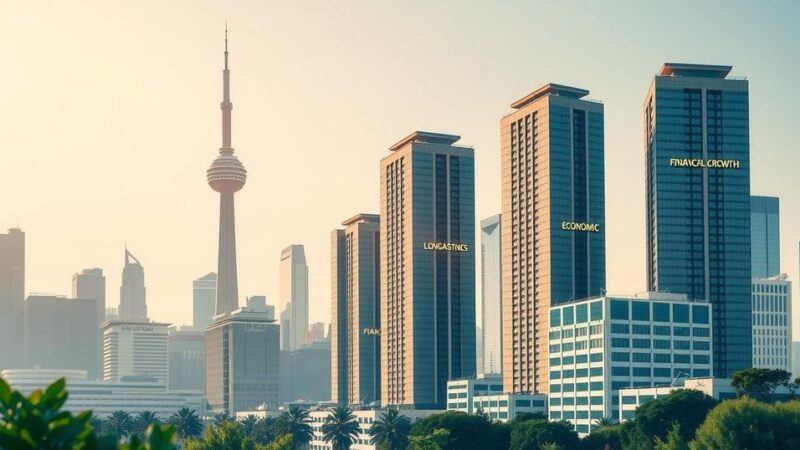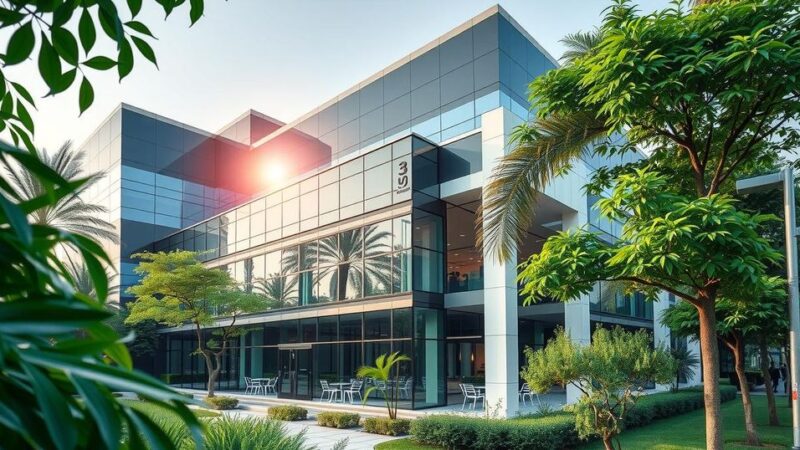Guinea’s bauxite industry is currently facing challenges following the suspension of export operations from Port Kamsar, with significant implications for job security and local economic stability. The potential link to delays in establishing a refinery has raised concerns among stakeholders. In comparison, Indonesia’s recent ban on bauxite exports seeks to enhance domestic processing capabilities, although risks to production levels remain. This dual situation underlines the strategic importance of mining policies and their economic repercussions for resource-rich countries.
Guinea’s bauxite industry faces uncertainty following the recent suspension of bauxite export operations from Port Kamsar, as announced by a leading aluminium producer’s mining subsidiary. The reasons behind this abrupt pause remain unclear, raising concerns regarding its implications for the local workforce and the overall economic situation in Guinea, a nation rich in natural resources yet notably impoverished. The halt in operations could lead to significant job losses among the contract workers heavily reliant on the mining activities, and sources hint that it may be related to unaddressed conditions tied to governmental agreements essential for the sector’s viability. Initial reports suggest that the suspension coincides with delays in the establishment of a planned alumina refinery, a setback that may inhibit the company’s operational capabilities. In light of these developments, the workers’ union is mobilizing efforts to engage with the national authorities to mitigate the potential fallout on employment. Moreover, senior representatives from the parent company are scheduled to visit Guinea in an attempt to facilitate negotiations, reflecting a mutual interest to resolve matters expediently. In a broader context, this situation can be juxtaposed with Indonesia’s strategic shift in its bauxite export policies. The Indonesian government has pledged to prohibit bauxite exports starting inJune 2023, supporting an initiative aimed at enhancing domestic processing capabilities. President Joko Widodo has reiterated the commitment to maximizing national resource sovereignty and creating employment opportunities, aiming to promote fair economic growth. While there are risks associated with this new directive, particularly regarding production levels potentially exceeding local processing capacity, past experiences—including the advantageous impact of Indonesia’s 2020 nickel export ban—offer insights into the benefits such initiatives can yield for a nation’s economy. As Guinea contemplates its next steps amidst these challenges, it may draw lessons from Indonesia’s strategic export transition.
Guinea possesses the largest bauxite reserves globally along with substantial iron ore, diamond, and gold resources but continues to grapple with severe poverty. The bauxite industry is critical for the country’s economic health, particularly in terms of employment and revenue generation. However, the recent suspension of export operations raises alarming questions about the stability of jobs and local economies that heavily depend on this sector. During this period of instability, the Guinean government, the mining companies, and the workers’ union are pivotal stakeholders in negotiating the future of the industry. Contrasting Guinea’s situation, Indonesia’s strategic approach of banning bauxite exports reflects a broader trend of focus on maximizing local processing and enhancing economic integrity.
The recent suspension of bauxite exports in Guinea signals potential economic repercussions, especially concerning job security among workers dependent on the industry. As stakeholders react, the situation highlights the urgent need for effective dialogue between mining companies and governmental authorities to navigate the complexities of the bauxite market. Meanwhile, Indonesia’s strategic export ban serves as a case study, demonstrating both the challenges and benefits associated with redefining export policies to fortify domestic industries. The ongoing developments in Guinea will not only impact local employment but may also shape the future of bauxite mining and export policies across West Africa.
Original Source: www.alcircle.com






